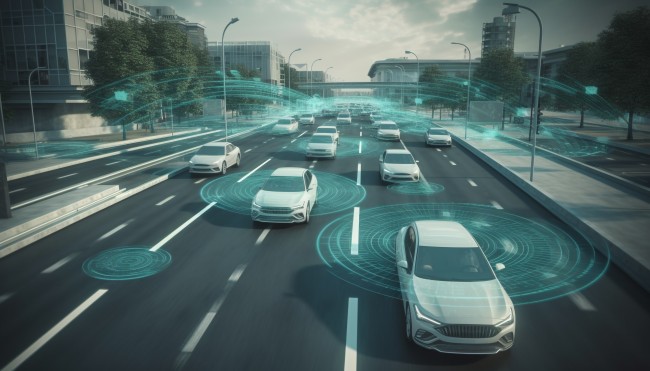
Over the past few years, the automotive industry has undergone a remarkable transformation, largely driven by unprecedented technological advancements. Among the most significant developments in this evolution is the advent of connected cars.
As the heart of the American automotive industry, Michigan has emerged as a pioneering force in shaping connected car technologies.
By the way, if you are willing to become a part of this auto community and purchase a used item, do not forget to use a Michigan license plate lookup tool which aims to disclose all the hidden flaws of your future vehicle.
But in this article we will give an in-depth look at Michigan’s impressive strides in the realm of connected cars, with a particular focus on vehicle-to-vehicle (V2V) communication, cybersecurity, and the integration of smart systems.
Vehicle-to-Vehicle (V2V) Communication: Enhancing Safety and Efficiency
Connected cars possess the remarkable ability to communicate with one another through cutting-edge V2V communication systems.
Michigan has stood at the forefront of developing and rigorously testing V2V technologies, with the primary objective of significantly elevating road safety and overall efficiency.
V2V communication empowers vehicles to exchange real-time data, such as speed, location, and heading, fostering the creation of a robust digital safety net on our roads.
Collision Avoidance and Emergency Braking
Thanks to V2V communication, connected cars can effectively detect potential collision risks and instantly alert drivers, providing a proactive safety measure.
Crucially, in critical situations, the system can autonomously trigger emergency braking, thereby reducing the likelihood of accidents and ultimately saving precious lives.
Traffic Flow Optimization
Connected cars in Michigan are redefining traffic management with their ability to share traffic information amongst each other. This collaborative approach enables these intelligent vehicles to optimize traffic flow, leading to reduced congestion and enhanced road efficiency.
As a result, not only do drivers experience shorter commute times, but the reduction in unnecessary idling and stop-and-go traffic also contributes to curbing greenhouse gas emissions.
Cybersecurity: Safeguarding Connected Cars from Threats
As the prevalence of connected cars continues to grow, the assurance of robust cybersecurity measures is paramount in safeguarding drivers and passengers from potential cyber threats.
Michigan has been actively engaged in the development and implementation of advanced cybersecurity solutions for connected vehicles.
Secure Communication Protocols
A culmination of collaborative efforts between Michigan’s research institutions and automotive companies has led to the establishment of secure communication protocols for connected cars.
These protocols act as a formidable defense against unauthorized access to vehicle systems and sensitive data, ensuring that vehicle control remains solely in the hands of authorized personnel.
Over-the-Air (OTA) Updates
Embracing the dynamic nature of technology, Michigan’s automotive industry has enthusiastically embraced OTA update capabilities. This cutting-edge approach empowers manufacturers to deliver software updates and security patches remotely, without necessitating a physical visit to a service center.
As a result, connected cars remain fortified against emerging threats, guaranteeing utmost security and peace of mind for drivers.
Integrated Smart Systems: Enhancing the Connected Car Experience
Michigan’s connected cars go beyond the realm of basic communication and safety features. At the vanguard of technological innovation, the state’s automotive industry has taken strides in integrating smart systems to create a seamless and personalized driving experience.
Infotainment and Connectivity
Michigan-based automakers have been at the forefront of developing advanced infotainment systems, seamlessly integrating smartphones, navigation, and multimedia features.
These innovative systems offer drivers and passengers real-time access to information, entertainment, and connectivity, thereby elevating the overall driving experience to new heights of comfort and convenience.
Predictive Maintenance
Equipped with an array of cutting-edge sensors and systems, connected cars in Michigan benefit from an abundance of data.
Leveraging artificial intelligence and machine learning algorithms, manufacturers can predict potential maintenance issues before they escalate into major problems.
This predictive maintenance approach not only reduces downtime but also enhances vehicle reliability, resulting in a seamless driving experience for car owners.
Michigan’s steadfast commitment to the development of connected car technologies has propelled the automotive industry into an era of unparalleled innovation.
From V2V communication that enhances safety and road efficiency to robust cybersecurity measures shielding drivers from potential threats, and the integration of smart systems that offer a seamless and personalized driving experience, Michigan continues to shape the future of connected cars.
As technology evolves and consumer demands continue to evolve, Michigan’s automotive industry stands poised to play a pivotal role in fully unleashing the potential of connected cars, making driving safer, smarter, and more enjoyable than ever before.
